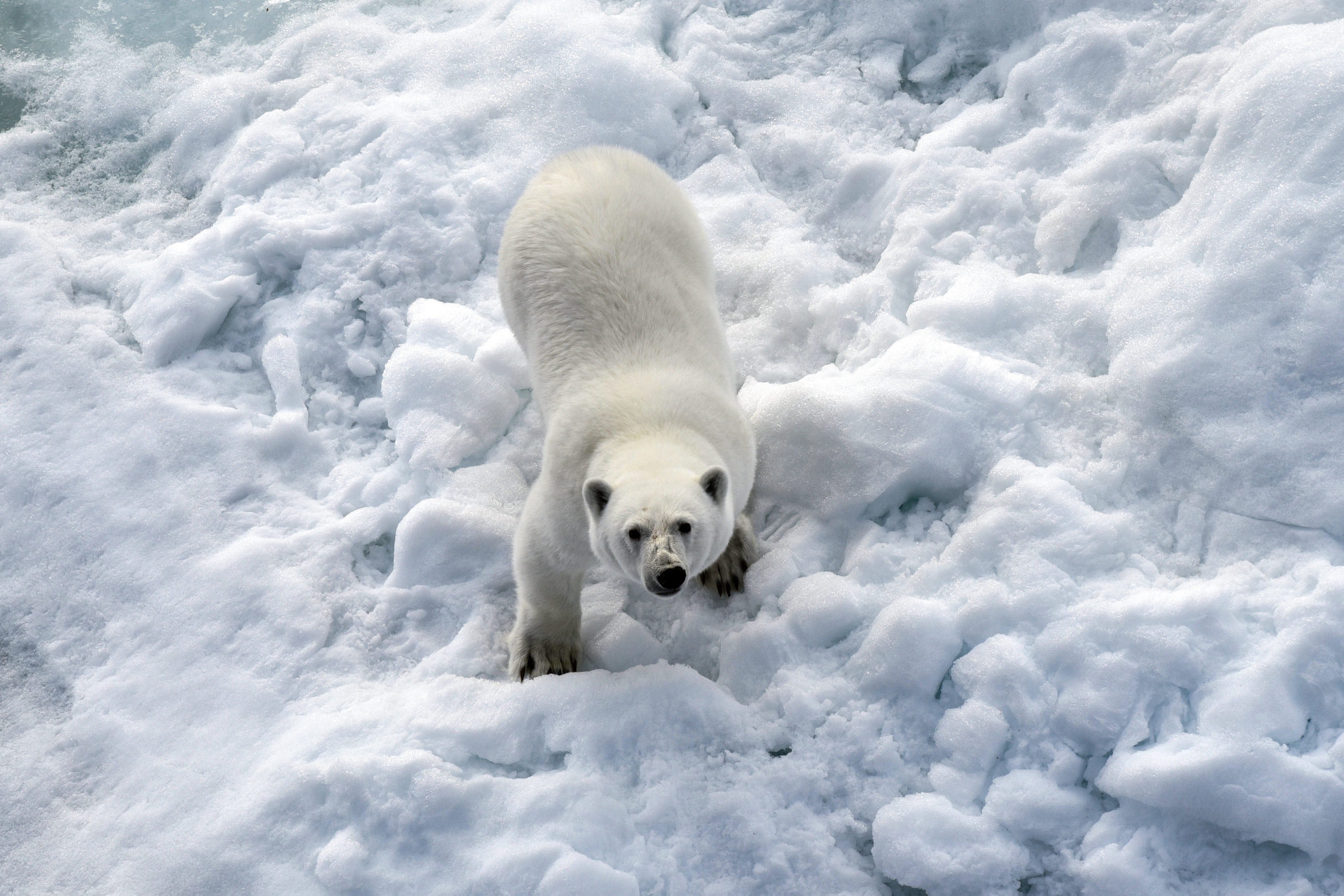Russian researchers are seeing more cannibalism among polar bears
It's not clear if the uptick is related to climate change.

MOSCOW — Russian researchers are observing an increasing number of cases of cannibalism among polar bears.
There have been more instances in recent years of animals hunting and eating their own species, according to Ilya Mordvintsev of the Severtsov Institute of Ecology and Evolution at Russia’s Academy of Sciences in Moscow in a study released on Friday.
But it is unclear whether this is related to climate change, says Mordvintsev.
[Denning polar bears need better protection from Alaska oil development, scientists say]
“At some times of year there is a lack of sustenance. That is when large males attack females with cubs.”
Polar bears usually hunt seals on the sea ice. But because the Arctic Ocean is ice-free for longer stretches of time, they go on land to find food.
In the last few months there have been several reports of the bears getting close to places where people live. This is getting more common, Mordvintsev said.
He believes this change is due to rising temperatures. “The animals are adapting to better deal with the conditions,” he said, but added the rise is still a cause for concern.
Mordvintsev described the condition of the observed bears as good. A study from the last year shows animals turning to plants and bird eggs for sustenance in summer, he said.
He added that not a single dead bear was found on the coasts and islands with symptoms of extreme exhaustion.
Russia will now begin to count its polar bears, in a huge monitoring exercise to find out more about the endangered species.